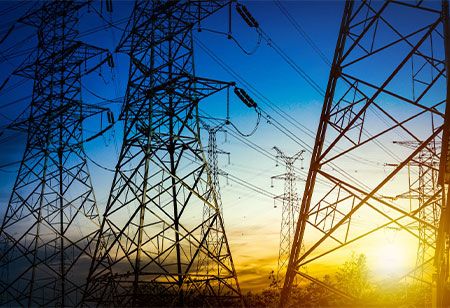
Navigating the Seas of Business Energy: A Comprehensive Guide

 Running a business involves many decisions, in- cluding managing energy expenses. Selecting the right energy plan can significantly impact operational costs and sustainability goals. Utility Bidder helps business owners understand how much energy they need and guides how to choose suitable energy tariffs, reduce consum- ption, save money, and evaluate supplier options.
Running a business involves many decisions, in- cluding managing energy expenses. Selecting the right energy plan can significantly impact operational costs and sustainability goals. Utility Bidder helps business owners understand how much energy they need and guides how to choose suitable energy tariffs, reduce consum- ption, save money, and evaluate supplier options.
This guide gives readers practical insights to make informed decisions, optimizing their energy expenditure efficiently. Begin by comparing the latest rates!
Understanding Energy Tariffs for Businesses
Business energy tariffs can be complex, with various options for different needs. Tariffs refer to the pricing structures set by energy suppliers. They include standard variable tariffs, fixed-rate tariffs, and green ones. Each type has distinct characteristics and advantages.
- Standard Variable Tariffs: Rates can fluctuate based on market conditions, meaning energy bills may vary monthly. This flexibility can be beneficial if market prices drop but risky if prices rise.
- Fixed-Rate Tariffs: Offer stable rates for a specified period, protecting businesses from price hikes. While this provides certainty in budgeting, it might mean missing out on potential savings if energy prices decrease.
- Green Tariffs: Focus on renewable sources, helping businesses reduce their carbon footprint. These can be slightly more expensive but appeal to energy companies committed to sustainability.
Tips for Reducing Energy Consumption
Reducing energy consumption is crucial for both cost-saving and environmental reasons. Simple measures can lead to significant savings.
1. Install Smart Meters
These devices provide real-time data on energy usage, helping identify peak consumption times and areas where energy can be conserved. Businesses can make informed decisions to cut down on unnecessary usage.
2. Energy-Efficient Equipment
Investing in energy-efficient equipment can reduce energy consumption. Look for equipment with high energy ratings and consider upgrading old systems.
3. Behavioral Changes
Encourage staff members to make energy-saving changes in their daily lives, such as shutting off lights and appliances when not using. Frequent energy audits may also identify development opportunities.
Choosing the Right Business Energy Supplier
Selecting the right energy supplier involves comparing different business energy suppliers and their offerings. Key factors to consider include pricing, contract terms, and customer service.
- Pricing and Tariffs: Compare business electricity rates and gas and electricity deals various suppliers offer. Look for competitive rates and consider dual tariffs for potential savings.
- Contract Terms: Pay attention to the length of contracts and any associated fees for early termination. Some suppliers offer flexible terms, which can be beneficial if your energy needs change.
- Customer Service: Good customer support is essential for resolving issues quickly—research supplier reviews and ratings to ensure reliable service.
Evaluating Contract Terms and Conditions
Understanding contract terms is vital for making an informed decision. Energy contracts can include various clauses that affect your overall costs and flexibility.
- Contract Length - Business energy contracts typically range from one to five years. Longer contracts can lock in rates but may lack flexibility if your business changes.
- Termination Fees - Some contracts impose penalties for early termination. Ensure you understand these fees and any conditions under which they apply.
- Renewal Terms - Be aware of automatic renewal clauses that could lock you into another term without notice. Opt for contracts that offer clear renewal options.
The Impact of Wholesale Energy Prices
Wholesale prices significantly influence the rates offered by suppliers. These prices fluctuate based on demand, supply, and geopolitical factors.
- Market Trends
Keeping an eye on market trends can help businesses choose the right time to secure energy contracts. When wholesale prices are low, fixed-rate tariffs become more attractive.
- Supplier Pricing Strategies
Suppliers may pass on cost savings to customers or use price increases to protect their margins. Understanding these strategies can aid in negotiating better deals.
- Exploring Green Energy Options
Many businesses are shifting towards renewable energy to reduce their environmental impact. Green energy tariffs support this transition by sourcing electricity from renewable sources.
Aside from sustainability, green energy tariffs can enhance a company's reputation and appeal to environmentally-conscious customers. Options include solar, wind, and hydroelectric power. Some suppliers offer 100% renewable energy plans, which can significantly lower your carbon footprint.
Using Smart Meters to Manage Energy Usage
Smart meters are essential tools for monitoring and managing energy consumption. They provide detailed insights into energy usage patterns, allowing businesses to optimize their consumption.
- Access to real-time data helps identify high-usage periods and potential savings opportunities. Adjusting operations during off-peak hours can reduce energy tariffs.
- Integrating smart meters with energy management systems can automate adjustments to energy usage, further enhancing efficiency.
Final Words
Optimizing business energy costs involves understanding energy tariffs, reducing consumption, choosing suppliers, and evaluating contract terms. Practical insights from Utility Bidder enable business owners to make informed decisions that align with their operational and financial objectives.
FAQs
1. How can a business benefit from a dual fuel tariff? Dual fuel tariffs combine gas and electricity services under one supplier, often at a discounted rate, simplifying billing and potentially lowering overall energy prices.
2. What are the advantages of using a smart meter? Smart meters provide real-time data on energy usage, helping businesses identify savings opportunities and reduce consumption by adjusting operations based on accurate insights.
3. How does a green energy tariff contribute to a business's sustainability goals? Green energy tariffs support using renewable sources, reduce a business's carbon footprint, and align with corporate sustainability objectives while enhancing brand reputation.